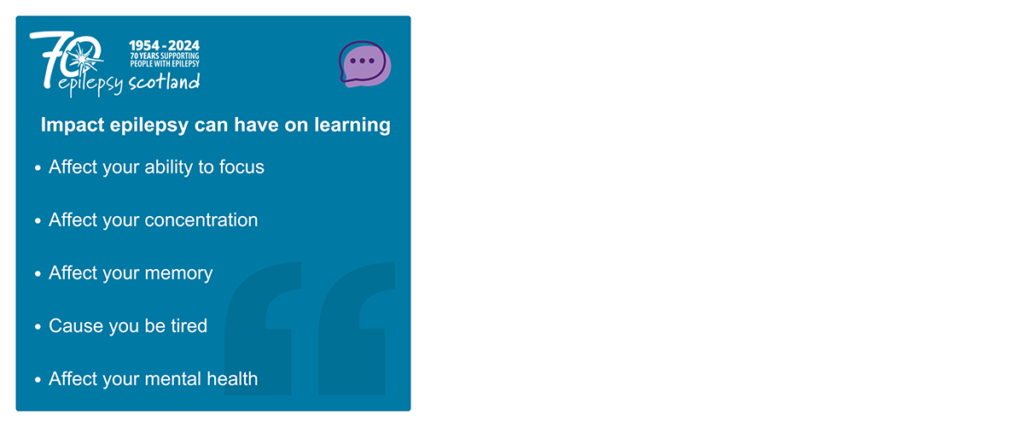In National Epilepsy Week (20-26 May), Epilepsy Scotland has launched its #BeyondSeizure campaign to highlight the long-lasting impact epilepsy can have on people living with the condition and the funding required to support them.
Epilepsy is experienced differently by everyone living with it. Some will live normal lives because their seizures are controlled well by medication, but many will experience challenges that can affect numerous aspects of their lives.
The condition may affect the mental health and memory of individuals living with the condition. It may also impact their social life, employment prospects, and freedom to drive, which can all lead to social isolation. It can also lead to early death as epilepsy can kill. Over a 100 people a year in Scotland die of the condition.
Charities like Epilepsy Scotland do not provide clinical care. We provide what is called social support. Social support for people with epilepsy focuses on providing a person with resources and knowledge helping them develop skills and confidence to live well and safely with epilepsy and self-manage their condition.
This includes services such as information, advice and guidance from a specially trained colleague, peer support meetings and activities, epilepsy self-management courses (delivered online or in person), one-to-one support either face to face or through remote services.
Evidence shows that people who have good social support and better manage their health conditions have better overall health outcomes and crucially use health services less often. On top of that, when they do present themselves to clinical appointments with issues, they tend to be less complex and take less resources to treat.
All this adds to a savings to the NHS. Having the right social support in the community will lead to easing the strain on the struggling NHS and help people with epilepsy live better lives.
Health professionals know this, which is why they refer patients to organisations like Epilepsy Scotland which provide social support.
Yet despite receiving a steady number of referrals from Neurology departments and GPs across Scotland not one health board provides funding for Epilepsy Scotland to deliver our social support work in the community.

With the economic landscape we now find ourselves in, we cannot continue to operate as we have in the past. Our social services cannot be fully funded independently anymore and therefore cannot be offered for free anymore to those bodies who refer people to us.
It is time Scottish Government, Local Authorities, and health boards recognise the vital importance of social support services delivered by health charities, which very often help deliver their own local and national policies and plans.
It is time they accept they cannot keep expecting those services to be delivered for free. It is time for them to contribute a fair amount towards the delivery of our social support services across Scotland.
Throughout National Epilepsy Week, Epilepsy Scotland will highlight the impact epilepsy can have on memory, learning at school or university, and the impact it can have on people looking for work or who are currently in employment and why social support is needed via it’s #BeyondSeizure campaign.

The Scottish epilepsy charity will be sharing stories from people living with epilepsy describing how the condition has impacted them and how they have overcome the challenges and stigma that come with epilepsy.
Epilepsy Scotland Chief Executive, Lesslie Young said: “Epilepsy is so much more than seizures. It can lead to anxiety, depression, social isolation, loss of independence, loss of work and issues with learning at school, college or university.
“During National Epilepsy Week, we want to highlight the incredible stories of people living with epilepsy who battle with the challenges the condition brings and show amazing resilience dealing with everything the condition throws at them every day and still live fulfilling lives.
We also want to highlight the lack of statutory funding for delivering the social support services which help those people better manage their conditions, and ultimately save the NHS money. It’s time for statutory bodies to start paying for services we deliver that directly benefit them.
Andrew Lindsay is head of policy and external affairs for Epilepsy Scotland.







